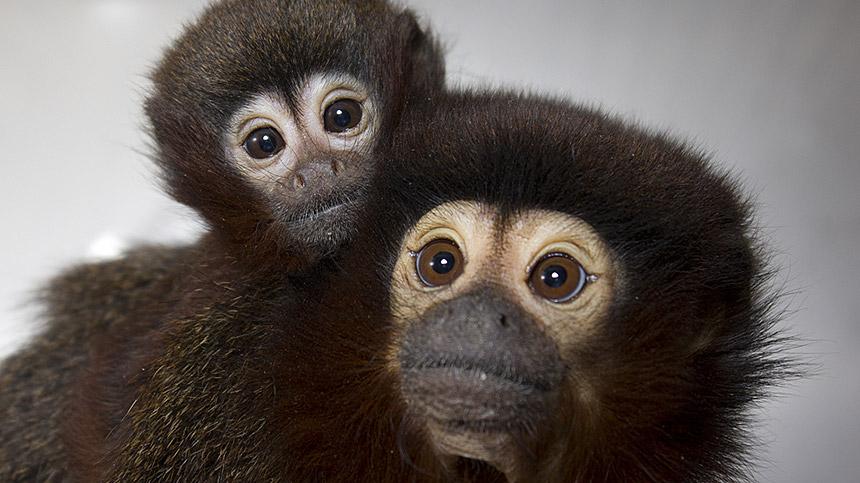Primate brain complexity may be linked to fruit
By Emma Gruner, Staff Writer
“An apple a day keeps the doctor away,” as the old saying goes.
The benefits of a fruit-rich diet for our physical health and well-being is considered common knowledge.
Yet new research suggests that fruit may be a mental superfood as well — or at least it was to our primate relatives.
According to a recent study, the increased size and complexity of certain primates’ brains may have evolved due primarily to an affinity for fruit.
The observation that some primates’ brains are larger and more evolved than others has been recognized for years.
Until this point, however, factors like diet and ecology were considered irrelevant.
Rather, the prevailing explanation for the phenomenon is what is known as the social brain hypothesis, which states that primates evolved larger brains in order to interact in larger groups.
In fact, it was the realm of social relationships that originally inspired study author Alex Decasien, a doctoral student of biological anthropology at New York University.
Decasien was curious whether a primate’s status as either monogamous or promiscuous had any effect on its brain size, and she decided to conduct research into the matter.
Decasien and her team collected data about diet and social life from 140 species across all primate groups – monkeys, apes, lorises and lemurs.
Remarkably, neither monogamy/promiscuity nor, as the social brain hypothesis would suggest, community numbers appeared to have a marked influence on brain size.
Instead, the determining factor was diet – whether the primate’s meals consisted of mostly leaves or mostly fruit. For example, spider monkeys and howler monkeys – both of whom live in the South American rainforest in social groups of about ten – displayed significant differences in brain size.
While the howlers spend their days leisurely munching on trumpet tree leaves, the spider monkeys use their evenings to forage for passion fruit…and have larger brains to show for it.
Overall, primates with a fruit-based diet had approximately 25 percent more brain tissue, even when adjusted for body size and species relatedness.
Decasien and her team published their findings in Nature Ecology and Evolution on March 27.
From a biological standpoint, these findings are sound. In leaves, important nutrients are locked behind cell walls, the digestion of which takes considerable energy.
Fruits, on the other hand, provide large amounts of calories in an easy-to-digest package, allowing the excess energy to go towards the development of the brain.
Nonetheless, many members of the scientific community are not entirely convinced by Decasien’s conclusions.
One of the most vocal critics has been Robert Dunbar, evolutionary psychologist at the University of Oxford and one of the original authors of the social brain hypothesis.
While he admits that a fruit-based diet could very well have allowed the development of a complex brain, he still considers social relationships to be the ultimate selective pressure behind the process.
Dunbar argues that the increased cognitive demands of large communities led to the need for higher brain development, for which the extra fruit-harvested energy could be easily utilized. As he points out, “[diet and sociality] are not alternative explanations [for larger brains]. They are complementary observations”.
Decasien still has some diet-driven theories of her own, though. According to her, the process of finding and eating fruit is more cognitively challenging than eating leaves.
Leaves, she argues, primates can find anywhere, but fruit-eating requires them to remember and seek out the locations of the best specimens.
For these reasons, fruit-eating primates generally cover a larger range than leaf-eaters, which helps develop their navigation skills.
The process of recovering hard-to-reach fruits, too, provides the primates with opportunities to practice using tools and solving problems.
All of these factors could potentially be selective pressures in their own right, forcing the development of large brains among the fruit-eaters.
Of course, even Decasien concedes that the explanation behind her observations is probably not black and white, and that the primates’ diets may have simply jump-started brain growth before social pressures took over.
In the study of evolution, it can be extraordinarily difficult to distinguish between a legitimate selective pressure and what is simply a convenient physiological change.
“It’s definitely impossible to tease apart at some point,” Decasien admits.
Nonetheless, her research introduced a new, compelling variable into a debate that was long considered over, raising the question of what other scientific assumptions we may be placing a little too much confidence in.

